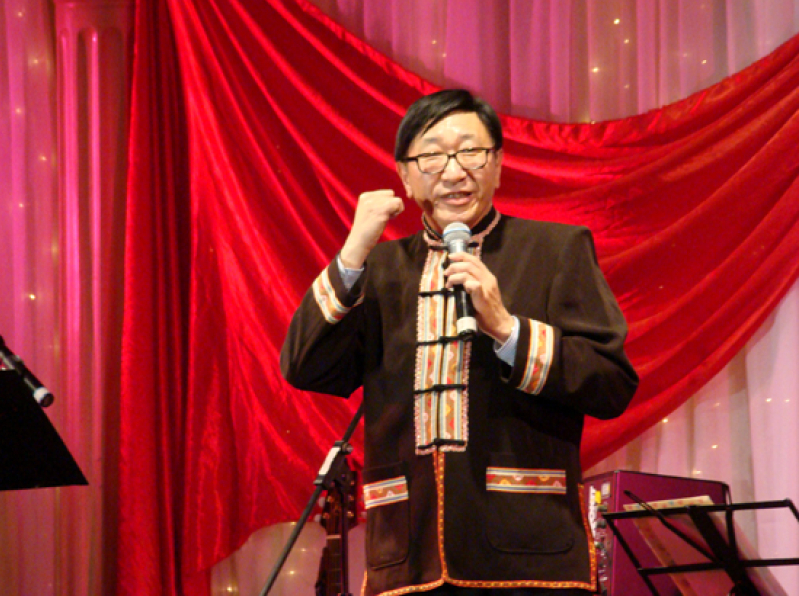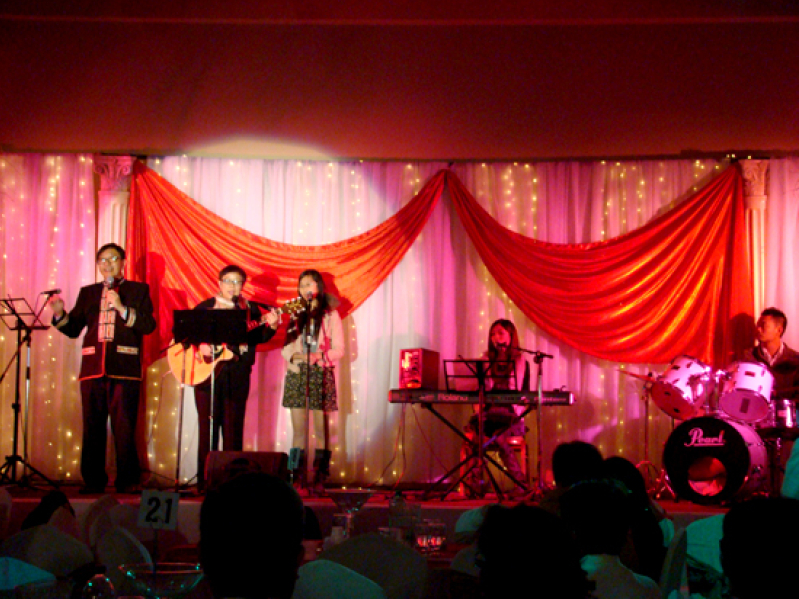

Cultural Regeneration Research Society (CRRS) held their 17th anniversary fundraising banquet on October 23rd at the Richmond Riverside Grand Ballroom in Vancouver, British Columbia. Guests from different sectors of the society gathered to contribute towards the future of China’s education.
As stated in their website, CRRS’ vision is to influence the emergence of the new Chinese consciousness and its mission is to seed China’s future generation with visions of its own potential and to give it the fundamental tools to enable every child to live out his/her aspirations. Since their founding 17 years ago, the ministry has produced accumulated significant amount of experience and work results through their charity in China.
That night, Vancouver-based China embassy consulate general and the CRRS directors each gave a speech, in which the directors reported of the past years’ progress and results as well as explain how the funds raised were used.
Sponsoring Development of China’s Education
From 2003 to 2010, CRRS has sponsored a total of 5,482 students to complete their education. These sponsorships included the students in the mountain areas of Bose, Guangxi, children of migrant workers in Shanghai, ethnic minorities in Yunnan, among others. The breakdown of the education levels are 427 graduate school students, 1,040 teachers in university training for certification, 2,732 high school students, 646 junior high students, 432 elementary students, and 205 college students.
For this year’s sponsorship case sharing, CRRS President Dr. Thomas In-Sing Leung particularly introduced several distinguished individuals from the impoverished mountain areas that were able to obtain outstanding achievement because of the sponsorship program. Gong He grew up as an orphan but later entered college; Me-Ling Huang now serves as a children’s dentist after completing eight years of graduate studies; Chuen-Liang Shi completed her university training and obtain her certificate to be a teacher, and she has returned to teach in her home village.
“Beautiful Planting, Life Building”
In 2006, Mei-Ling Huang scored 717 points in her college entrance exam and was accepted into the nationally renowned institution - Chongqing Medical University. However, because of her family’s low annual income of just $1,000, they were unable to afford Mei-Ling’s education costs and living expenses. While she acquired Rheumatism, a disease that shows the symptoms of arthritis, at a young age, she often had difficulties and pains during the winter season; another factor that affected her deeply was that the prejudice of male over female was quite deeply rooted in the mountain areas, which resulted in her uncles’ frequent scolding and abuses. Luckily, her parents truly cherished the three sisters, so she has placed all of her hopes in education, hoping that through exceptional grades she would enter university and change her entire family’s destiny.
Although her teacher pledged to give half of her monthly salary and her sisters would contribute from taking up jobs in Guangdong, Mei-Ling still wasn’t able to afford the costly education expenses, which caused her to fall into despair and contemplation of suicide.
Mei-Ling’s teacher Mrs. Ho sought for help everywhere and finally found Leung. This request was quickly answered; Leung and two doctors together donated the money, and during the CRRS visitation team visits, they were able to verify the actual situation and immediately distributed the funds. This donation fundamentally changed Mei-Ling’s life, allowing her to complete her studies for the medical major.
Through the unconditional love of a stranger from far away, Me-Ling learned to pray to God with a heart of thanksgiving, which she said has healed her sickness that did not occur again ever since.
In 2010, Mei-Ling graduated from the medical school and received her doctor’s certificate. She is now practicing as a pediatrician in Wuxuan County, Guangxi Province, where she has treated many cases of difficult diseases in children and was the hospital’s angel of love.
At various times, Mei-Ling would travel with the hospital’s medical team to a backwards region in Yunnan treating those poorer than her own upbringings.
While it is one of thousands of CRRS’s sponsored cases, Mei-Ling’s story sends off the deep message of “beautiful planting, life building.”
Canadian Youths Experience First-Hand the Harsh Living Condition in China
In addition to giving financial assistance to the impoverished students, CRRS also runs a program called “Project Shine”, where youths, sponsors, and family members would travel, paying their own expenditures for the trip, during summer to visit the impoverished families and students in China. On this trip, they will experience first-hand the extremely difficult living situation, be trained in their will, and learn to reflect on the meaning of life.
Around 10 students went on the stage one by one during the fund-raising dinner banquet and shared their experiences and thoughts after coming back from the trip.
CRRS’ social services towards the disadvantaged people groups in the remote farm areas of China have received the Chinese government’s recognition; many of their experiences and opinions were gladly accepted by the relevant government departments. In addition, the ministry’s hard work in promoting the China-Canada cultural exchange and poverty alleviation has won the applause and affirmation from the society and both nations’ government. In 2009, Leung was invited to attend China’s 60th anniversary celebration; in 2010, he was awarded the Multi-Cultural Award from the Canadian parliament. These awards and recognitions affirm CRRS’ effectiveness in acting as a bridge for cultural exchange and interaction between China and Canada.
[Editor's note: reporter Lucina from Vancouver, Canada, contributed to this report.]






